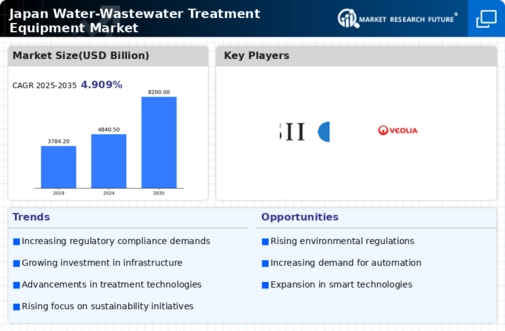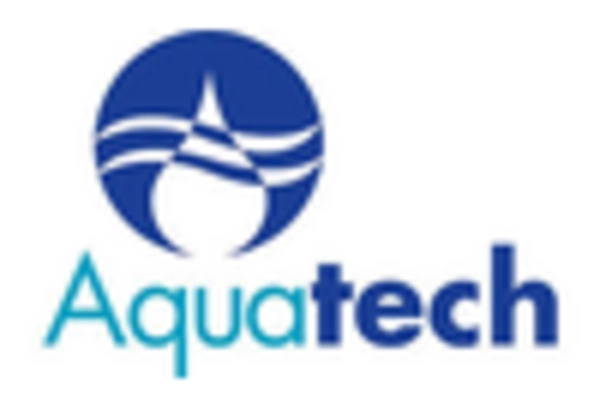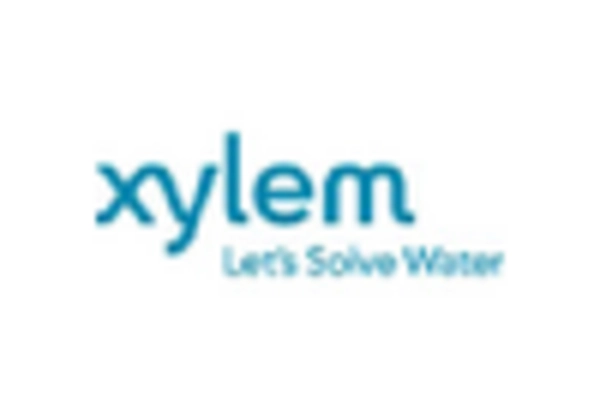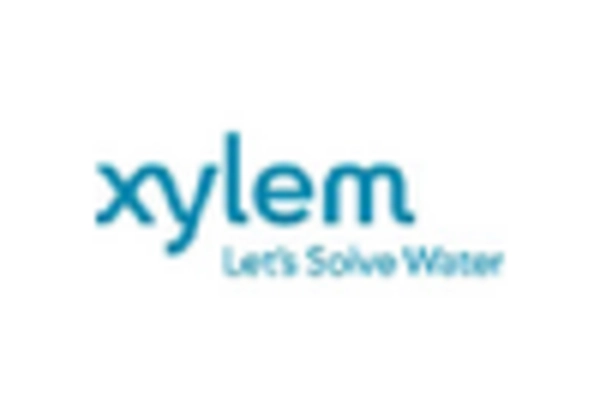The water wastewater-treatment-equipment market in Japan is characterized by a competitive landscape that is increasingly shaped by innovation, sustainability, and digital transformation. Key players such as Veolia (FR), SUEZ (FR), and Kurita Water Industries (JP) are actively pursuing strategies that emphasize technological advancements and environmental stewardship. Veolia (FR) has positioned itself as a leader in integrated water management solutions, focusing on enhancing operational efficiency through digital tools. Meanwhile, SUEZ (FR) is concentrating on expanding its service offerings in the Asia-Pacific region, leveraging its expertise in resource recovery and waste management. Kurita Water Industries (JP) is also making strides in developing advanced water treatment technologies, particularly in the industrial sector, which reflects a broader trend towards specialized solutions in the market.
The business tactics employed by these companies reveal a market structure that is moderately fragmented, with a mix of global and local players. Localizing manufacturing and optimizing supply chains are critical strategies that enhance responsiveness to regional demands. This localized approach not only reduces operational costs but also aligns with the growing emphasis on sustainability, as companies seek to minimize their carbon footprints. The collective influence of these key players fosters a competitive environment where innovation and customer-centric solutions are paramount.
In October 2025, Veolia (FR) announced a strategic partnership with a leading Japanese technology firm to develop AI-driven water treatment solutions. This collaboration aims to enhance predictive maintenance capabilities and optimize resource management, indicating a significant shift towards integrating advanced technologies in operational processes. The strategic importance of this partnership lies in its potential to improve service delivery and operational efficiency, thereby reinforcing Veolia's competitive edge in the market.
In September 2025, Kurita Water Industries (JP) launched a new line of eco-friendly wastewater treatment chemicals designed to reduce environmental impact. This initiative not only aligns with global sustainability goals but also positions Kurita as a forward-thinking player in the industry. The introduction of these products is likely to attract environmentally conscious clients, enhancing Kurita's market share and reputation.
In August 2025, SUEZ (FR) completed the acquisition of a regional water treatment company in Japan, which is expected to bolster its operational footprint in the country. This acquisition reflects SUEZ's strategy to expand its service capabilities and enhance its competitive positioning in the Asia-Pacific market. By integrating local expertise with its global resources, SUEZ aims to deliver more tailored solutions to its clients, thereby strengthening its market presence.
As of November 2025, the competitive trends in the water wastewater-treatment-equipment market are increasingly defined by digitalization, sustainability, and the integration of AI technologies. Strategic alliances are becoming more prevalent, as companies recognize the need to collaborate in order to innovate and meet evolving customer demands. The shift from price-based competition to a focus on technological advancement and supply chain reliability is evident, suggesting that future competitive differentiation will hinge on the ability to deliver innovative, sustainable solutions that address the complexities of water management.

















